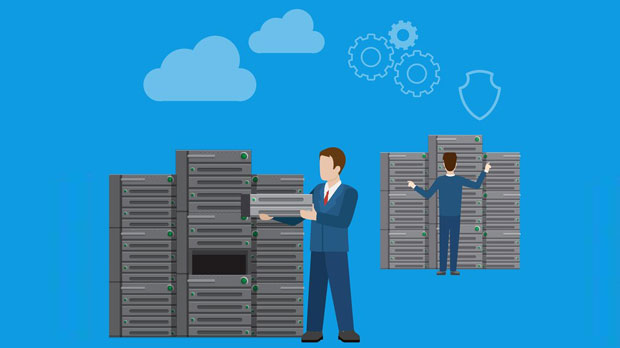In the world of online privacy and data security, the application of proxy services has grown significantly. A key component to the success of any proxy provider lies in its speed and stability, factors that greatly influence user experience and satisfaction. In this article, we will analyze the speed and stability of a specific proxy service, focusing on its practical applications and real-world benefits for users. With a detailed approach, we will examine how these factors contribute to the overall value of the service, especially for those who depend on efficient and secure browsing experiences. Introduction: The Role of Speed and Stability in Proxy ServicesWhen using proxies for online activities, speed and stability are two of the most crucial factors. Speed directly impacts the performance of websites and online applications, affecting everything from page load times to the responsiveness of cloud-based services. Stability ensures that the proxy connection remains intact, avoiding interruptions or downtime, which could have a negative impact on both personal and business activities. For users seeking an optimal browsing experience, these two factors are not negotiable, as they dictate the quality of internet access through the proxy.Speed: Defining the Key Performance MetricSpeed is often seen as the primary performance metric when evaluating proxy services. A proxy that operates at high speeds enables users to access websites and content quickly, allowing for a seamless browsing experience. This speed is influenced by several variables, including the distance between the user and the proxy server, the server’s overall capacity, and the current traffic load on the server.In terms of application, speed is critical for various online activities, such as streaming high-definition video content, engaging in real-time communication, and conducting business transactions. When a proxy service is slow, users may experience buffering, lagging, and delays in response time, all of which can lead to frustration and decreased productivity. On the other hand, fast proxies ensure that users can interact with online content without noticeable delays, making them ideal for both casual and professional use.Stability: The Foundation of Reliable ServiceWhile speed is often more visible, stability is the backbone that supports an uninterrupted and reliable internet connection. A stable proxy ensures that users maintain a constant connection without the risk of disconnections or service interruptions. This is particularly important for users who need to access secure websites, conduct financial transactions, or use cloud-based services for business purposes.A proxy that is unstable may lead to frequent drops in connection, forcing users to reconnect repeatedly. This not only wastes time but can also compromise data security, especially if users are forced to reconnect to different servers, potentially exposing sensitive information. Stability, therefore, is not just about uptime but also about maintaining the integrity and security of the connection, which is essential for ensuring user confidence and trust.Factors Influencing Speed and StabilitySeveral factors contribute to the speed and stability of a proxy service. Understanding these factors can help users make informed decisions when choosing a proxy provider.1. Server Location: The physical distance between the user and the proxy server plays a major role in determining speed. The closer the server, the faster the connection. Additionally, a geographically dispersed server network ensures that users from different regions can connect to nearby servers, reducing latency.2. Server Load: If a proxy server is overloaded with users, its performance will degrade. High traffic on a server can result in slower speeds and, in some cases, unstable connections. Providers that offer high bandwidth and the ability to manage multiple users effectively tend to perform better.3. Encryption Protocols: Proxy services often encrypt user data for privacy and security. While encryption is essential, it can also slow down the connection, especially if the encryption protocols are not optimized. Providers that use advanced encryption algorithms can ensure that security does not come at the cost of speed.4. Network Infrastructure: The underlying infrastructure of the proxy service, including the quality of the hardware, network connections, and maintenance practices, also plays a critical role in performance. Well-maintained servers with strong connections to the internet backbone are less likely to experience slowdowns or interruptions.Real-World Applications of Speed and StabilityTo fully understand the importance of speed and stability, it is necessary to explore how these factors apply in real-world scenarios.1. Business Operations: For businesses, proxies are often used for market research, competitor analysis, and protecting sensitive information. A slow or unstable proxy could lead to delays in accessing critical data, affecting decision-making processes. Moreover, frequent disconnections could result in business transactions being delayed or even lost, potentially costing the company both time and money.2. Streaming and Online Entertainment: For consumers, proxies are frequently used to access streaming services, especially when content is geo-restricted. The ability to stream high-definition content without buffering is a critical feature of a good proxy service. Similarly, gamers depend on fast and stable proxies to ensure lag-free online play, which is crucial for a positive gaming experience.3. Personal Privacy and Security: Many users employ proxies to safeguard their privacy and mask their online activities. A proxy that is both fast and stable ensures that users can browse securely without constantly worrying about connection interruptions. Moreover, when a user connects to an unstable proxy, the risk of exposing personal information increases, as the data may be rerouted through untrusted networks during reconnection attempts.Optimizing Speed and Stability for Better User ExperienceFor those who rely on proxy services for various online activities, optimizing speed and stability is essential. Choosing a service with a robust infrastructure, low latency, and high capacity is key to ensuring that users can enjoy a smooth, secure browsing experience. Regular updates and maintenance of the proxy infrastructure, such as upgrading server hardware and optimizing network connections, can also improve overall performance.In addition, choosing a provider that offers multiple server locations can provide users with more options and a greater chance of finding a nearby, fast, and stable connection. Some advanced proxy services even offer the ability to automatically switch to a better-performing server if the current connection experiences any issues.Conclusion: Balancing Speed and Stability for Optimal Proxy ExperienceIn conclusion, the speed and stability of a proxy service are crucial for ensuring a reliable and efficient online experience. Whether for business, entertainment, or privacy, users require both fast speeds and stable connections to meet their needs. By considering the factors that influence performance and understanding how they impact real-world applications, users can make informed decisions about which proxy service best meets their requirements. With continuous improvements in technology, future proxy services will likely offer even faster speeds and more stable connections, further enhancing the online experiences of users around the world.
Nov 03, 2025



































































